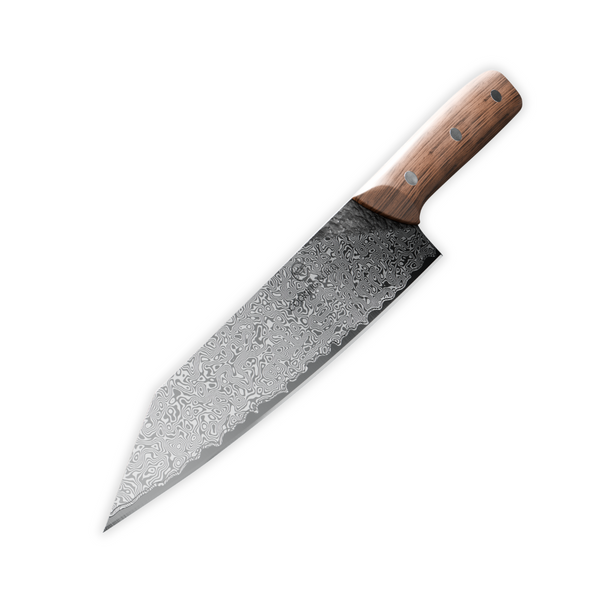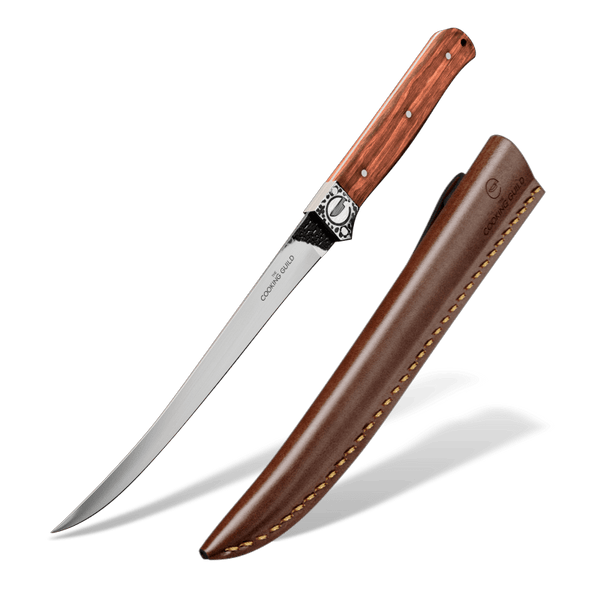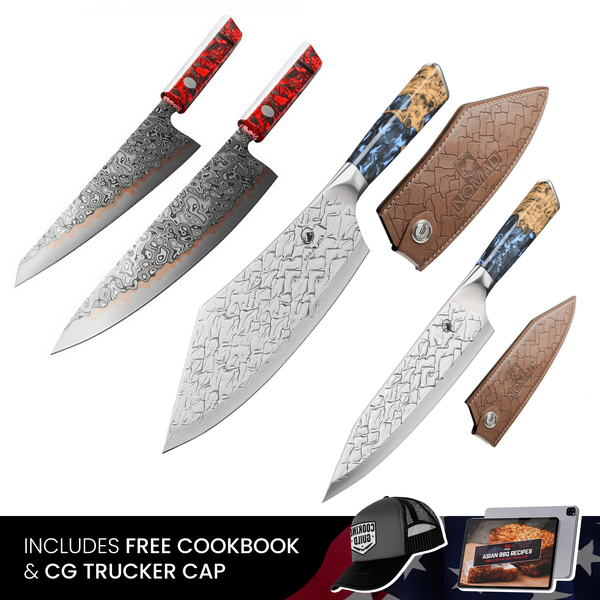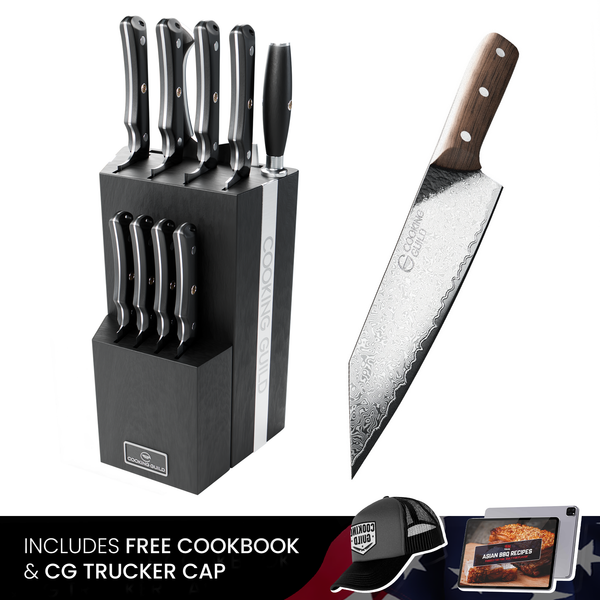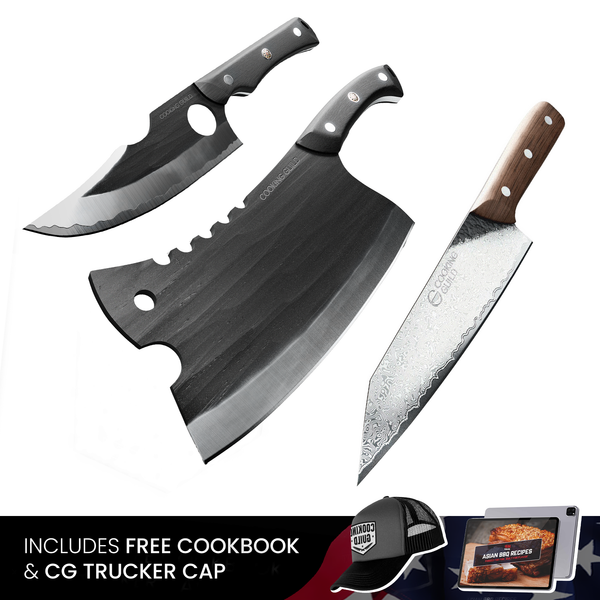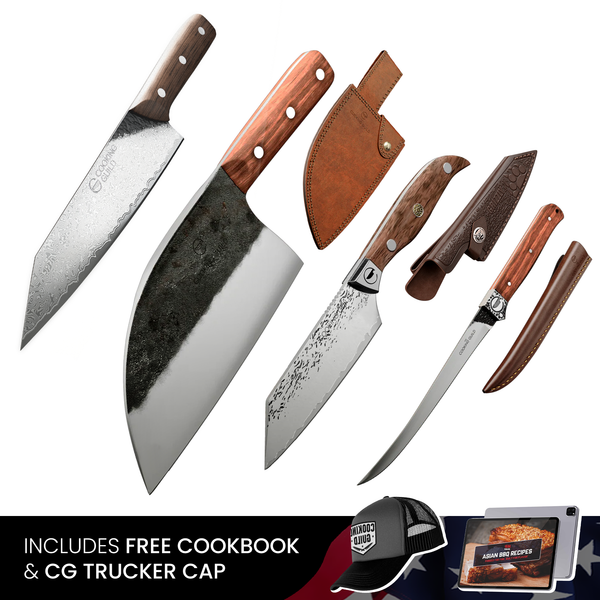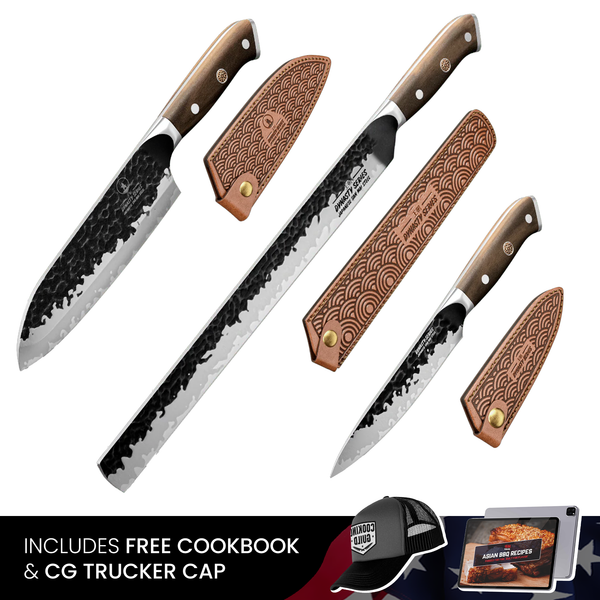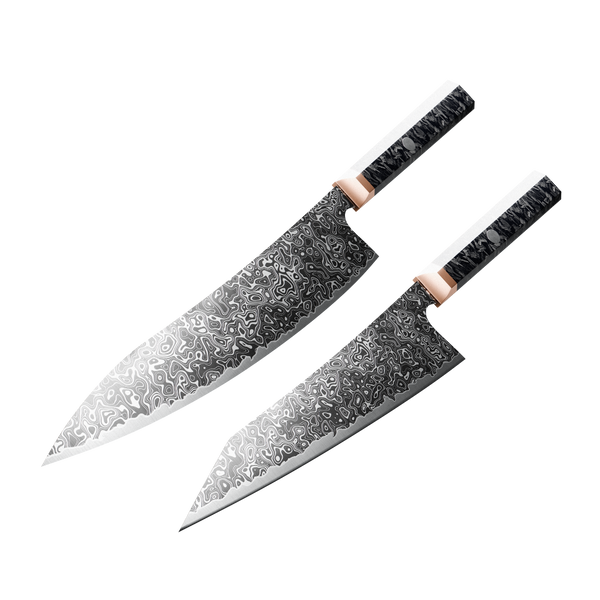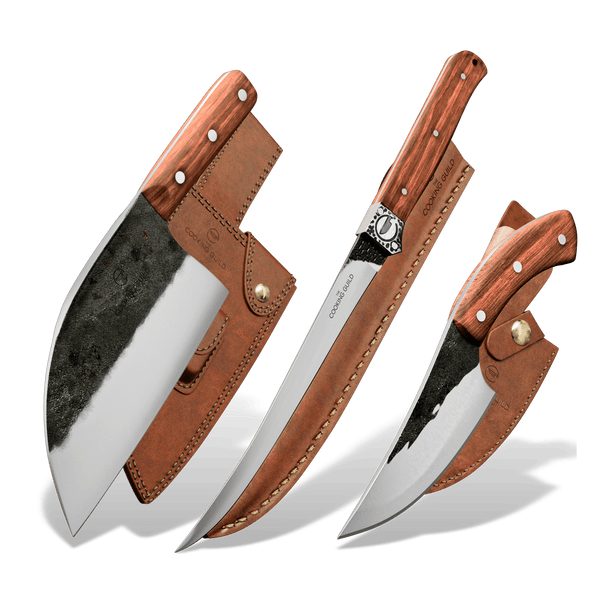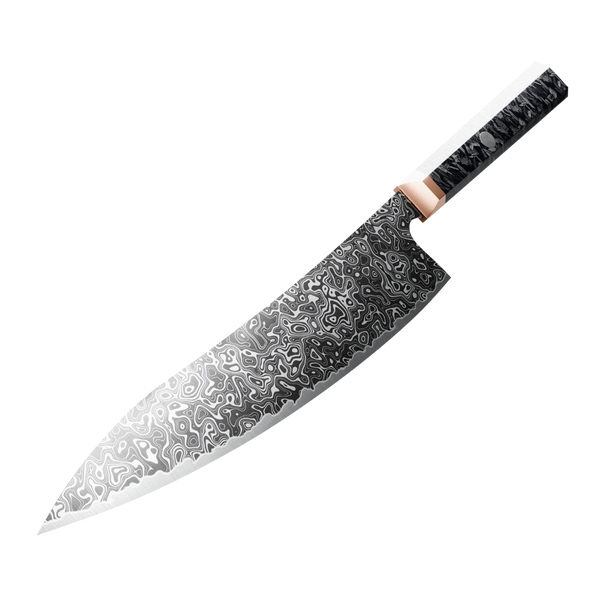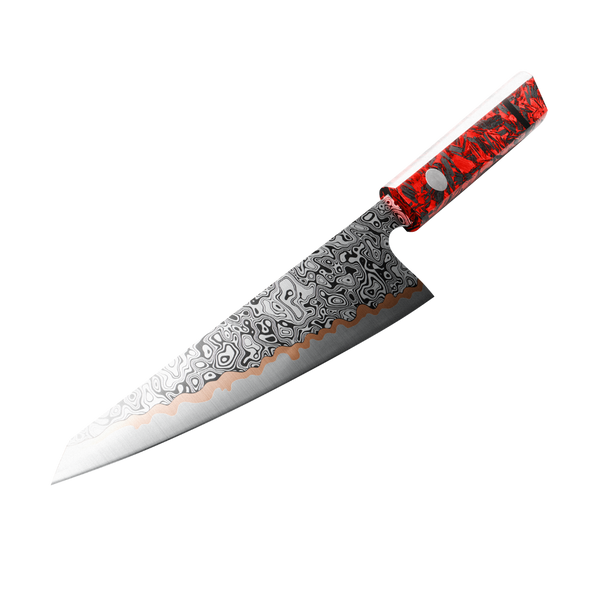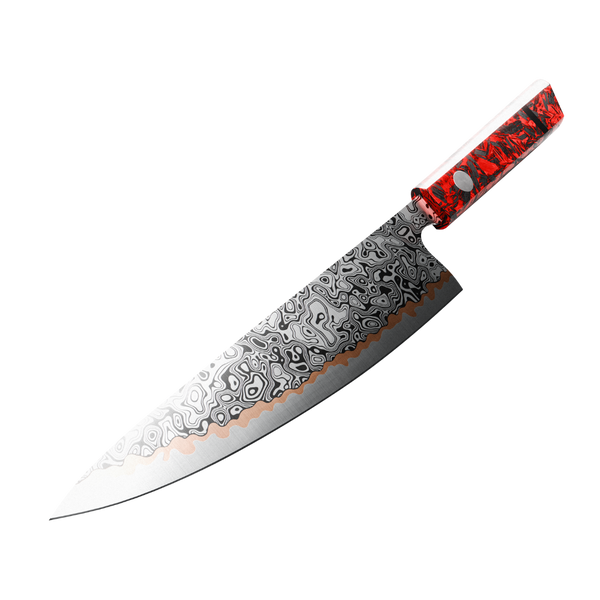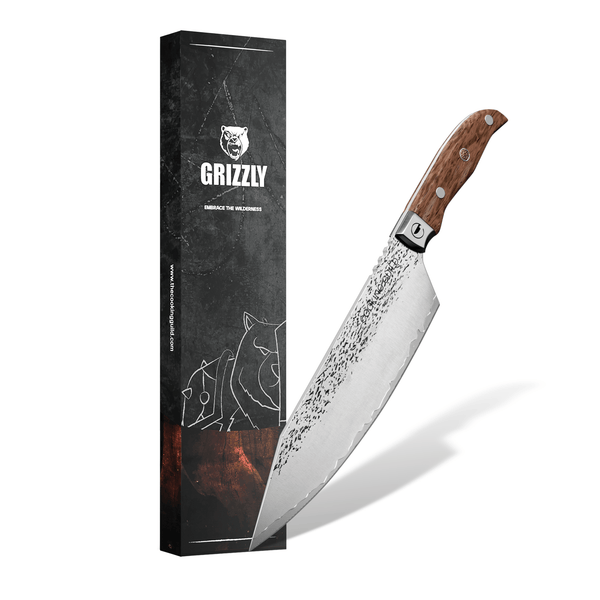
Rust happens. Especially if you’re using high-carbon knives like the Kaiju 8" Chef Knife or the Nomad Series Cleaver—which are designed for sharpness and edge retention, but need a little care to stay that way.
Here’s how to clean rust off your knife without damaging the blade—or the finish—and how to keep it from coming back.
Step 1: Identify the rust
Most kitchen rust is surface-level. It shows up as small orange or reddish spots, usually caused by moisture left on the blade. If it hasn’t pitted the steel, you’re fine. Just handle it sooner than later.
Step 2: Pick your method
Avoid steel wool or harsh scrubbing pads. You’ll scratch the finish or wreck a layered Damascus pattern.
Try one of these safe methods:
Option A: Baking soda scrub
-
Make a thick paste of baking soda and water
-
Apply directly to rust spots and let sit 15–20 minutes
-
Scrub gently with a soft cloth or non-abrasive sponge
-
Rinse and dry completely

This works well for blades like the Grizzly 5" Petty Knife, where you want to preserve the clean steel finish.
Option B: Vinegar soak (for heavier rust)
-
Submerge only the blade in white vinegar (avoid handles)
-
Let soak for 5–10 minutes
-
Gently scrub with a cloth or soft brush
-
Rinse and dry thoroughly
-
Follow up with light oiling

This method works well on tougher builds like the Bushcraft Fillet Knife or any knife that sees outdoor use.
Step 3: Dry completely
After cleaning, dry the blade thoroughly with a towel. Then place it over low heat (like a warm burner) for 30 seconds to evaporate anything left behind.
Step 4: Oil it
Rub a thin layer of food-safe mineral oil across the blade with a cloth. This is especially important for knives like the Nomad Series Chef Knife that have a beautiful, raw finish that needs conditioning.
Step 5: Keep it from coming back
-
Never leave your knife wet
-
Always hand wash and towel dry right away
-
Store in a dry place (bonus if you use a sheath or magnetic strip away from moisture)
-
Oil it monthly if you’re not using it often
Rust isn’t failure—it’s just a sign your knife is made from the real stuff
The best blades aren’t stainless. They’re carbon-rich, hard, and high-performing—which means they’ll show signs of life if you don’t care for them. But with a simple cleaning routine, they’ll last you for years, and then some.
